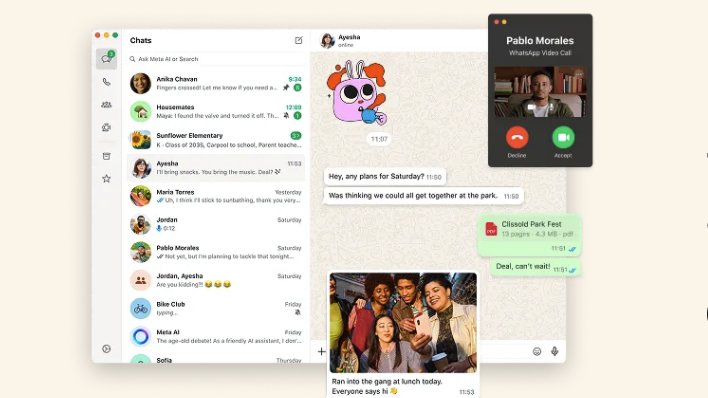
UPDATE: Researchers from the University of Vienna have just announced a staggering data scrape involving the personal information of 3.5 billion WhatsApp users, potentially marking it as the largest data leak in history. This alarming development raises immediate concerns for the vast user base of the messaging platform.
The research team claims the scrape involved sensitive details, including phone numbers, timestamps, profile images, and encryption keys, which could have “adverse implications” for the users involved. This raises urgent questions about the security of personal data on WhatsApp, especially since many users are unaware of their privacy settings.
WhatsApp allows users to check account information by inputting phone numbers, which likely aided this extensive data collection. However, users can control the visibility of their profiles. Notably, the researchers reported that a striking 57% of WhatsApp accounts had publicly accessible profile images, with two-thirds featuring recognizable human faces. This opens the door for potential privacy violations and misuse of data.
The research revealed a shocking ability to achieve a query rate of 100 million requests per hour, confirming phone numbers surpassing WhatsApp’s previously stated user base of “more than 2 billion.” This indicates a significant underreporting of the platform’s actual size and highlights vulnerabilities in WhatsApp’s privacy protocols.
In response to these findings, Meta has initiated new protective measures. The company stated, “In this study, academic researchers generated a list of phone numbers, checked if they are registered on WhatsApp, and compiled basic public information that people have made available to ‘everyone’ in a novel manner that exceeded our intended limits.” This admission underscores the platform’s need for stronger safeguards against data scraping.
Meta has introduced a new query rate limit for individual users, though this does not extend to business accounts, which are crucial for companies using WhatsApp to connect with customers. The company also modified how profile picture timestamps are displayed to enhance user privacy.
As users digest this information, the takeaway is clear: if you want to safeguard your profile image and personal details on WhatsApp, ensure your privacy settings are adjusted to restrict access. The implications of this research are profound, raising questions about data security practices across social media platforms.
With the landscape of digital privacy evolving rapidly, users must stay informed and proactive in protecting their personal information. This incident serves as a critical reminder for everyone utilizing messaging apps to regularly review their privacy settings and be aware of the potential risks associated with data sharing.
Stay tuned for further updates on this developing story.






